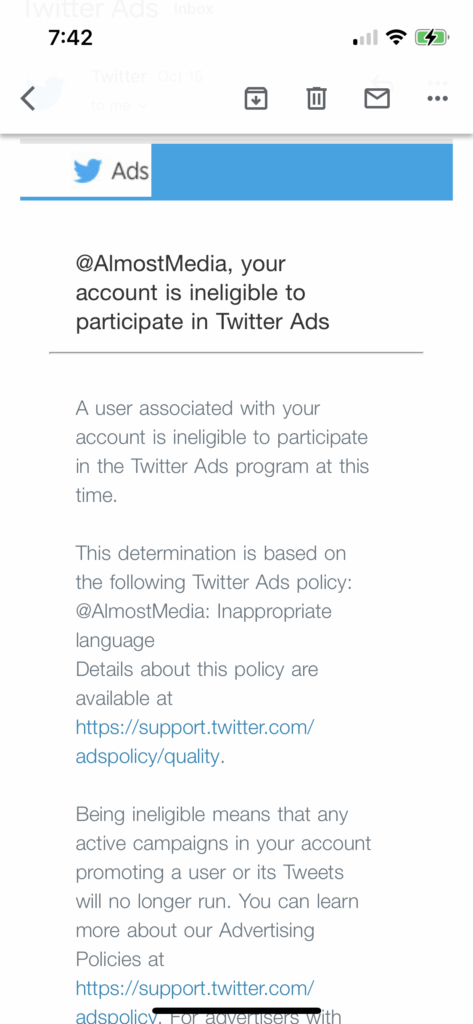I found myself crying my eyes out to my therapist this morning. Just full on sobbing. Nothing bad actually even happened to me during this week’s chaos. In fact, I’ve spent the last year or so preparing Alex and I for a downturn. I wouldn’t be much of a doomer if I didn’t swing into this downturn prepared.
It just all felt too familiar. It felt like the worst days of fear and insecurities from my childhood playing out all over again. My family went bankrupt during the great Web 1 unraveling. And I’ve never forgotten it’s lessons.
I remember feeling like I was in a secure situation and then learning in dramatic fashion that it was all gone. That all the hopes, dreams and aspirations that my father had done so much to prepare me to reach for (including a lot of very expensive colleges) would likely be out of reach. We’d be starting from scratch again. I hadn’t really had a lot of time to enjoy being a poor little rich girl. It was over too fast.
My father is a truly entrepreneurial man. When I was born the family lore is that he was pitching a edtech company. We were a startup family. We lived in Fremont which is (was) the shitty poor town. I suspect it was a lot harder than I even remember.
But dad found a way to realize his Silicon Valley dreams. He brought software to millions of people. He really did do the thing. And for a few years during the boom times it felt like we might be wealthy forever.
But finance is tricky. Lock ups can fuck you up. So can leverage. We had both. And then of course regular old fraud happens too. Yay.
But it wasn’t in vain. I learned those lessons well. I swing big and I bet on the future like my dad. I believe in people and in genius. But I also keep a balanced portfolio and back up plans.
I believe in exponential growth. But I also believe in the cost of capital. Sometimes money is cheap. Too cheap. And you need to prepare for when capital is expensive again. Because the laws of physics tell us that energy cannot be created or destroyed. And until someone smarter than me proves the laws of thermodynamics wrong, I will operate based on them.
And I am ready for the dark days. Both because it is literally November but also because I believe we’ve got chaos ahead. And if I’ve learned one thing from my childhood it is that you can survive it. It just takes a little bit of preparation. Which I’ve done. Everything else is just a case of history repeating.
